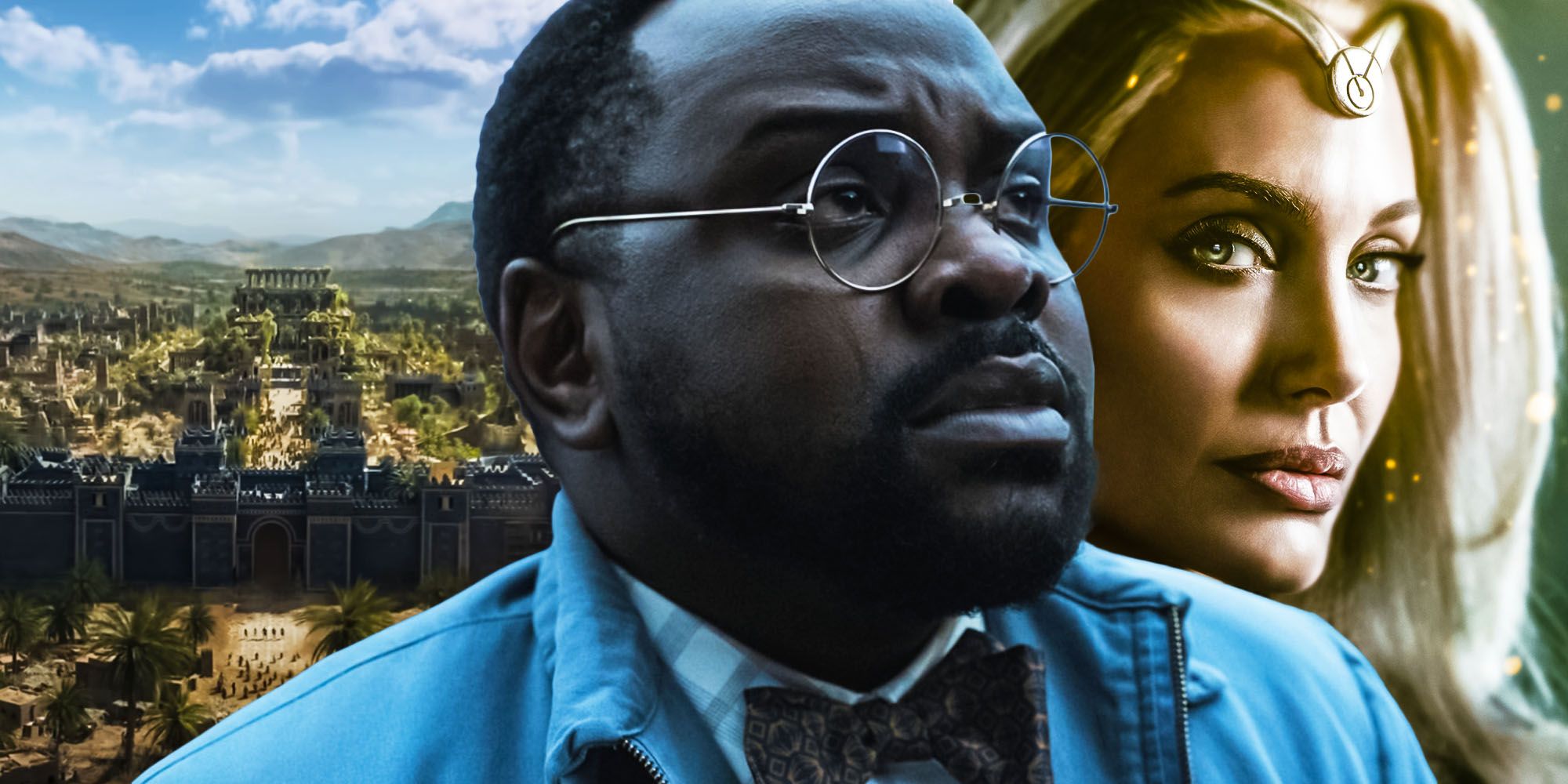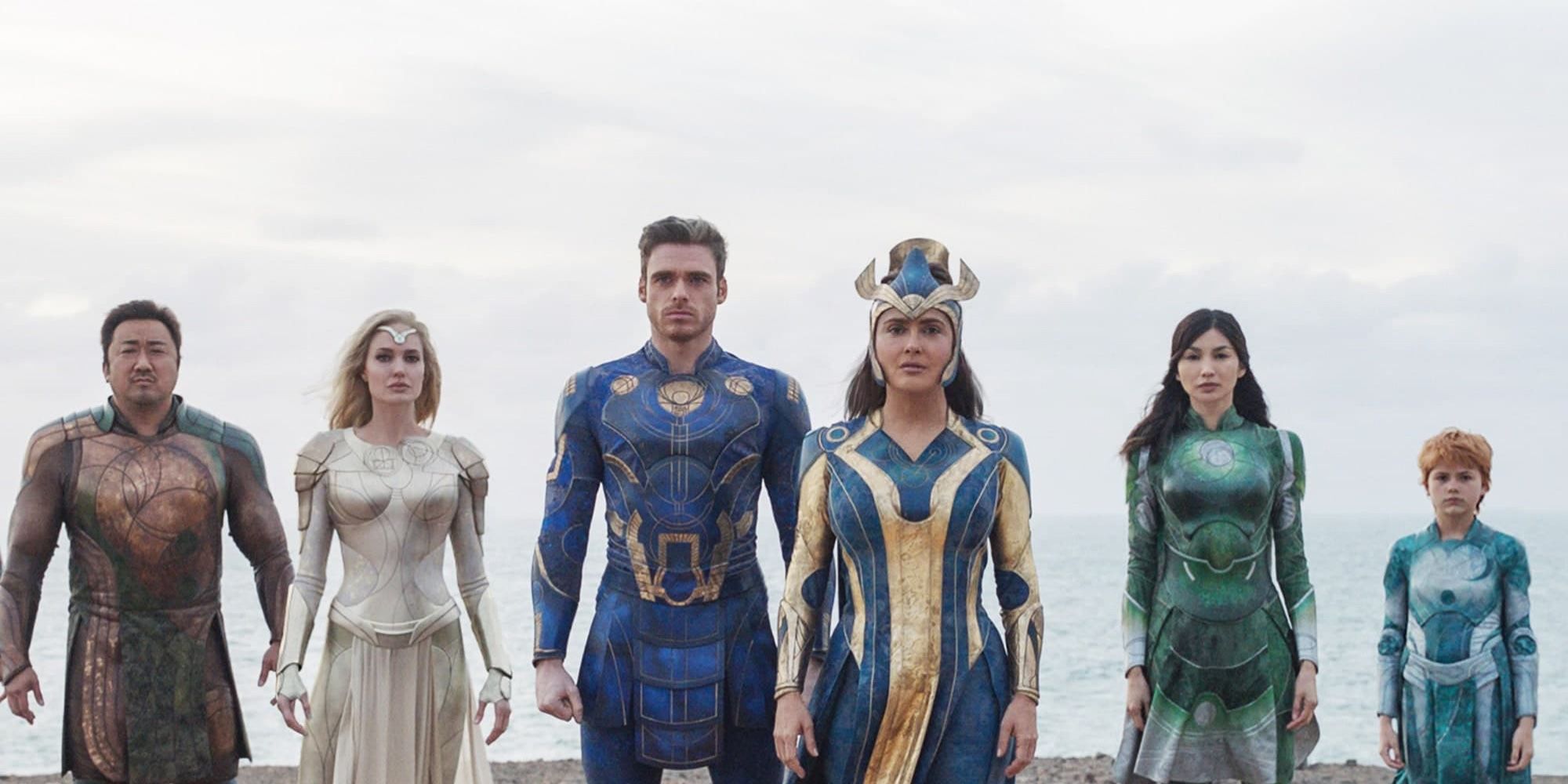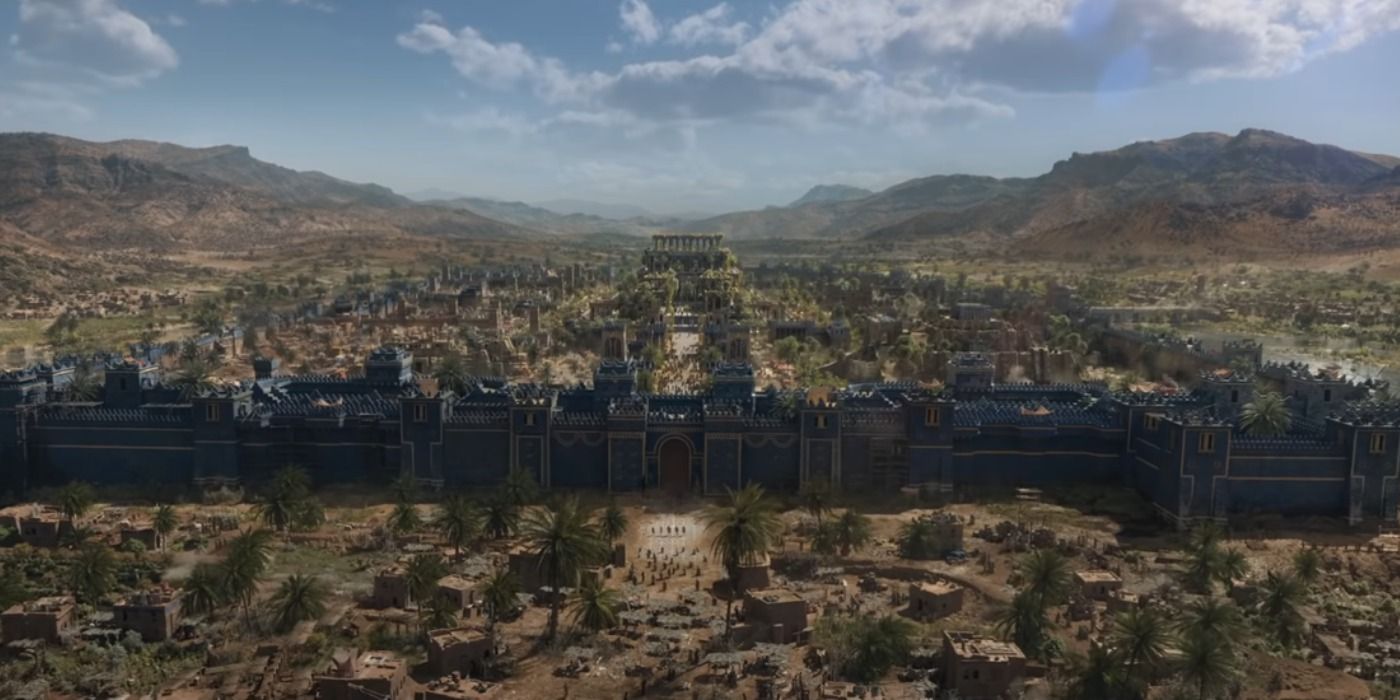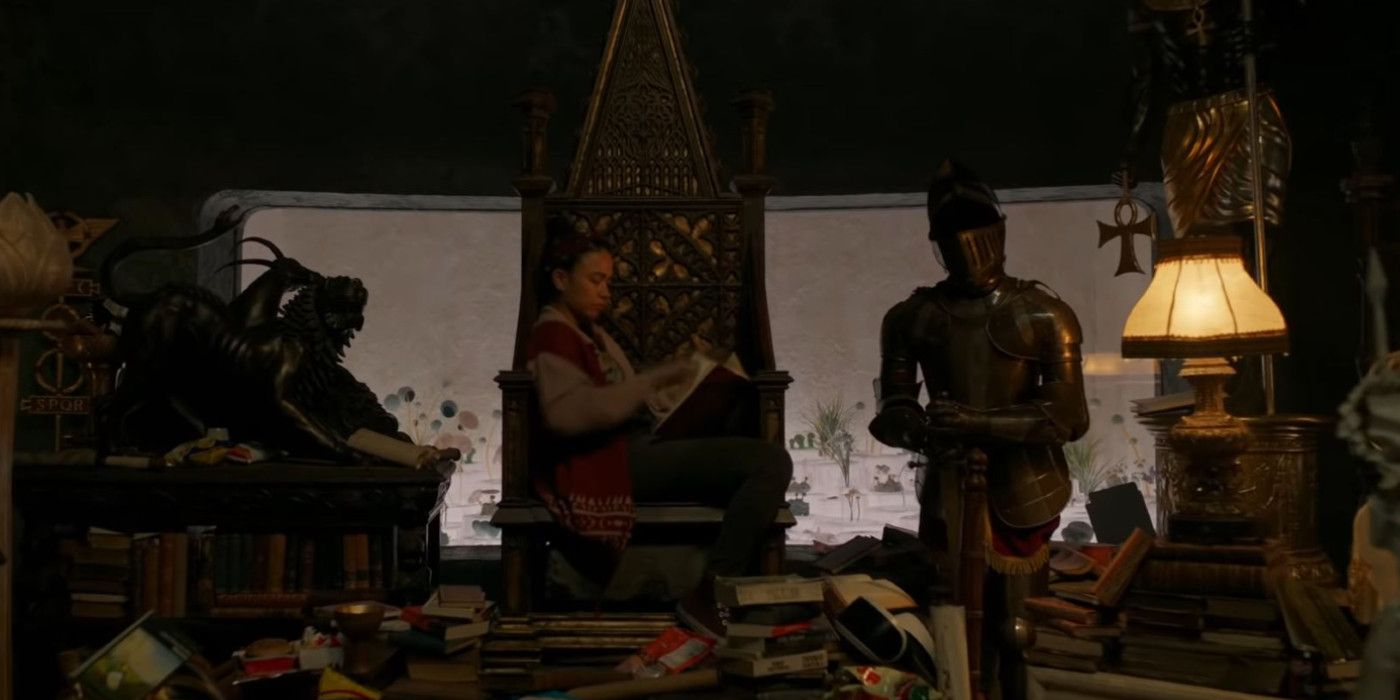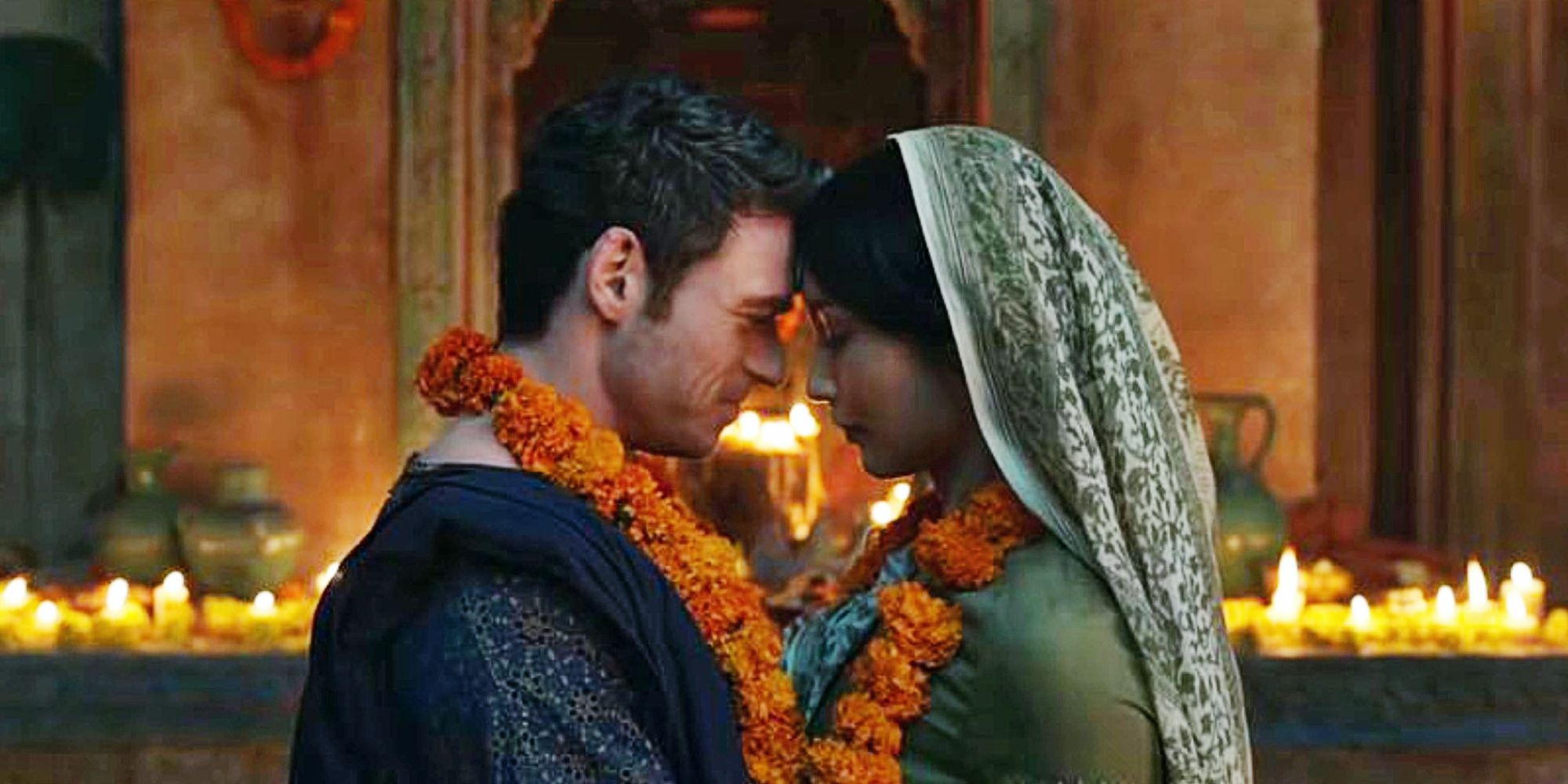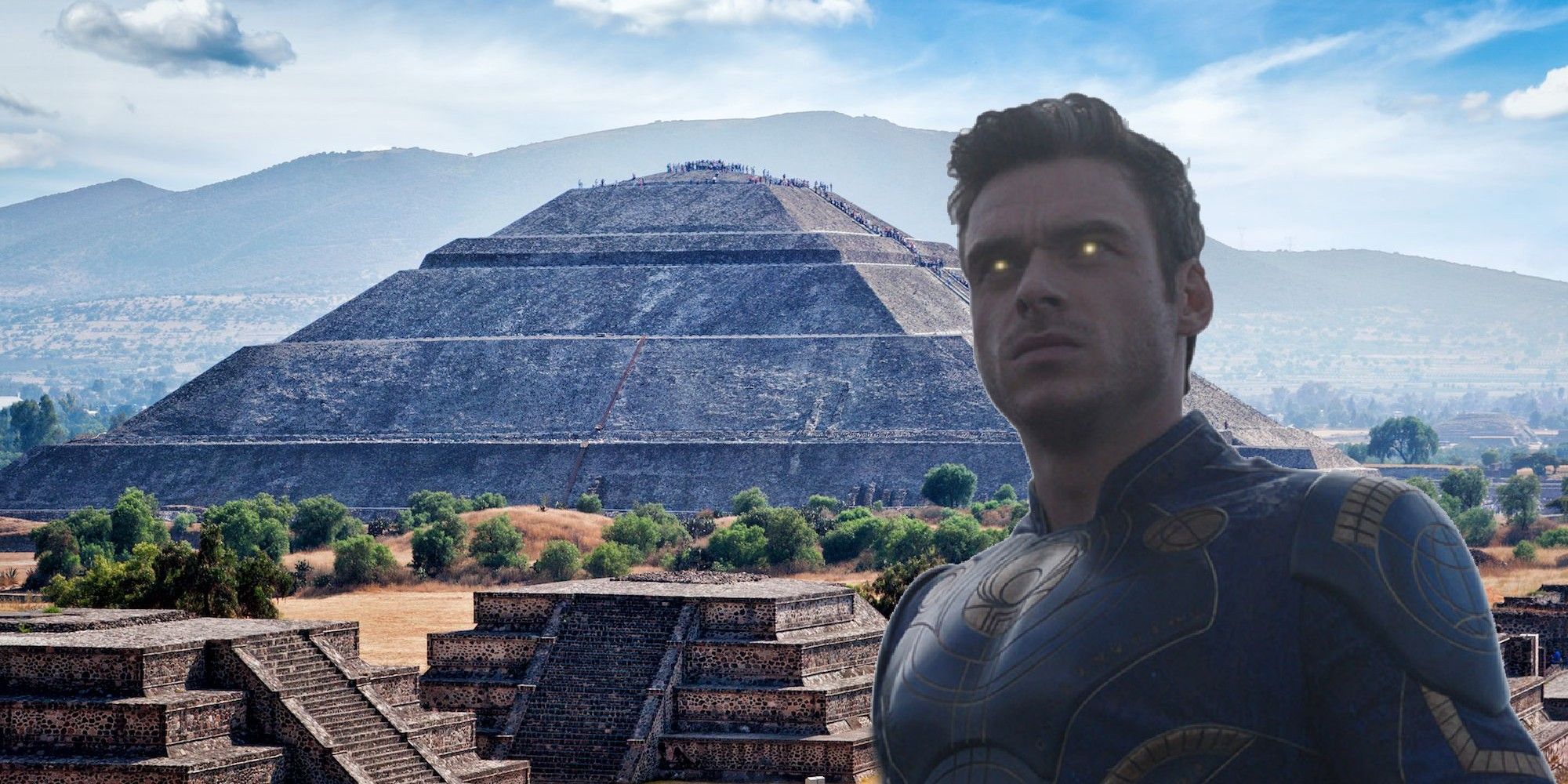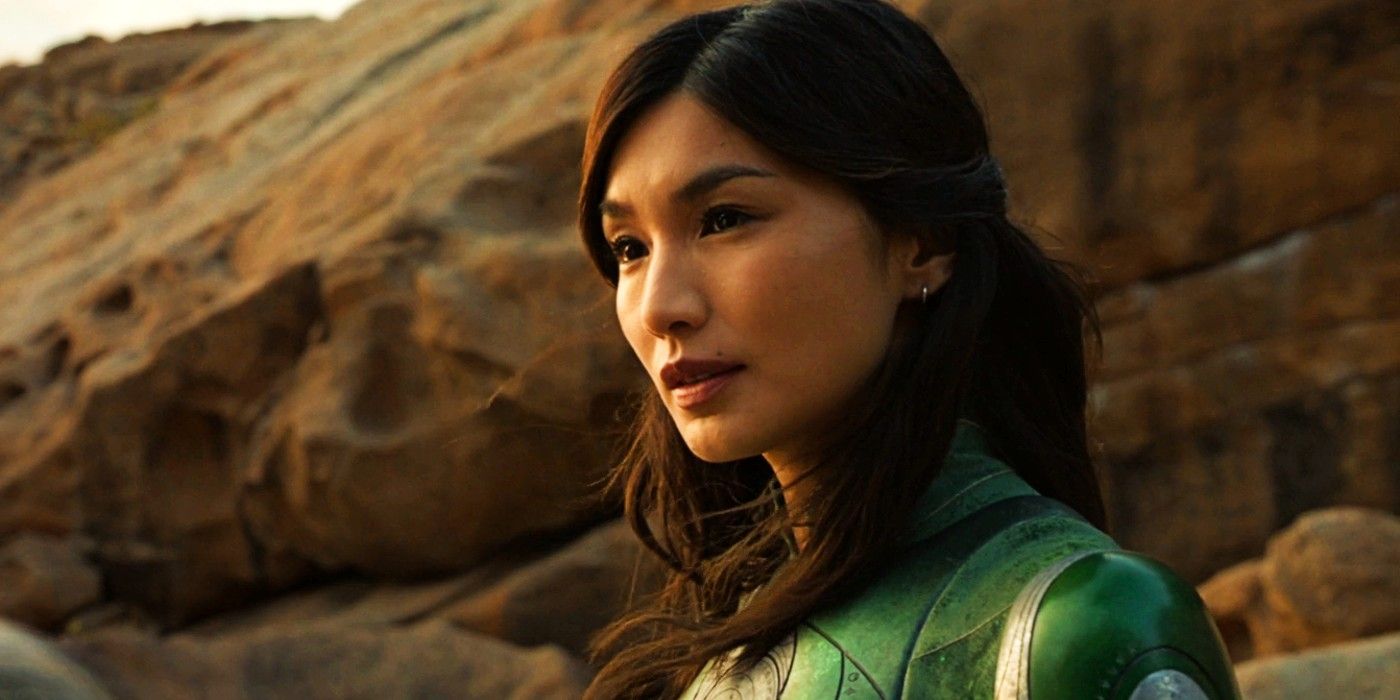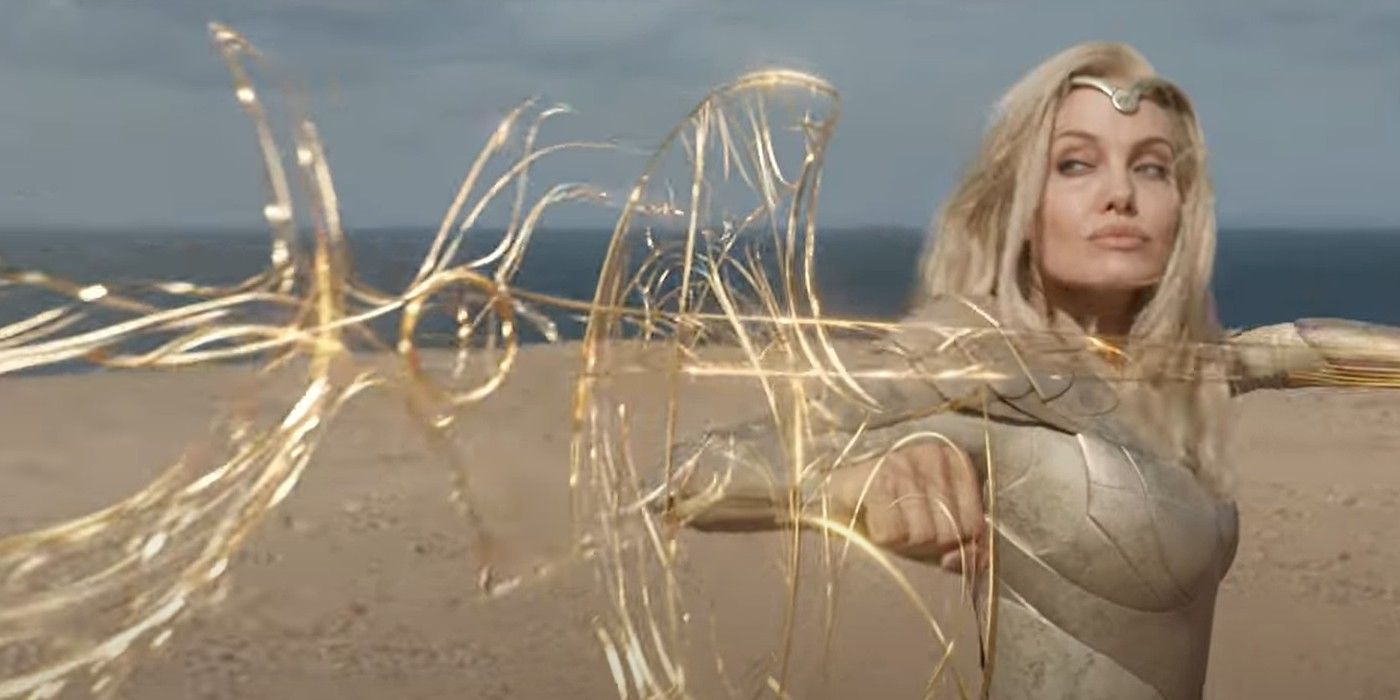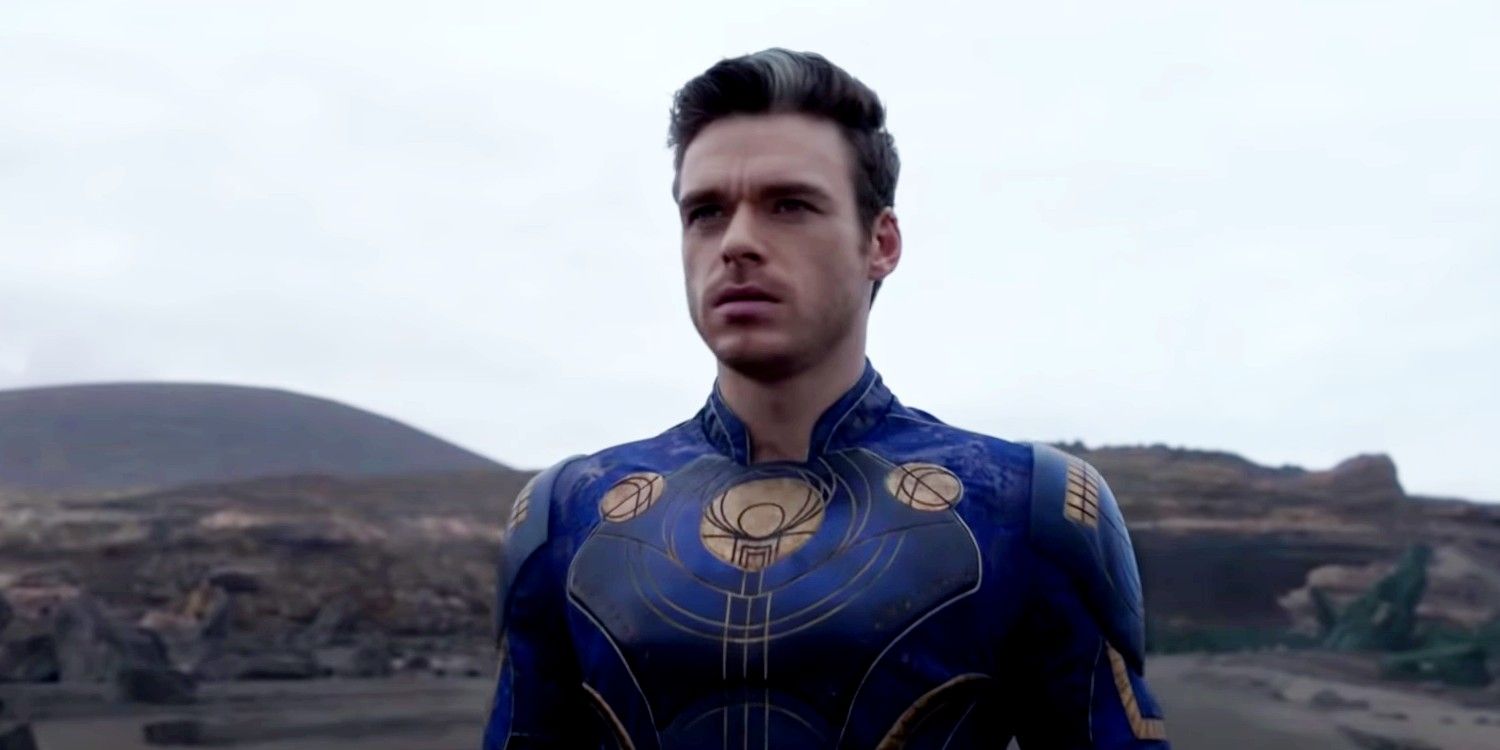Warning: Contains SPOILERS for Marvel's Eternals.
As evidenced by the swaths of historical references in Marvel's Eternals, the Eternals have profoundly impacted the MCU's history. Eternals carefully depicts Earth's guardians shepherding humanity from their base in the Neolithic period all the way through to contemporary civilization. Marvel's Eternals is littered with allusions regarding the Eternal's pertinent deeds that shaped Earth's subsequent 7,000-year history since their arrival, with a significant chunk of Eternals' plot and story dedicated to historical exposition.
The Eternals are first sent to Earth by the Celestial Arishem the Judge around 4,000 BCE under the pretense of protecting the planet from the bestial Deviants, who are running rampant and eating the human population. The Eternals are instructed to rid the world of the Deviants while simultaneously helping humanity to prosper without directly interfering in any planetary conflicts that do not involve their sworn enemy. While the central pillar of Eternals' plot revolves around Arishem's deception, the Eternals themselves excel at aiding humanity, with Phastos (Brian Tyree Henry) stating midway through the film that "humans have evolved too quickly" under the guidance of the Eternals.
Put simply, the Eternals are proven to have had a tremendous impact on Earth's, and therefore the MCU's, intrinsic history. From essentially birthing the cradle of civilization in Mesopotamia to directly influencing legendary figures such as King Arthur, the MCU as a whole would look completely different without the Eternals' tinkerings across the last 7,000 years. Here's every impact the Eternals had on Earth's history canonically and, by extension, the wider MCU.
The Neolithic Revolution
Eternals' opening sequence sees their spaceship, The Domo, land on the shores of an undeveloped Mesopotamia, as Ikaris saves a young child from the clutches of fearsome, winged Deviant. The Eternals promptly beat back the remaining Deviant creatures before revealing themselves to the awestruck indigenous people of the area. Historically, the Neolithic Revolution was the critical transition that resulted in the birth of agriculture, taking the Homo sapiens shown in Eternals' opening scene from scattered groups of hunter-gatherers to farming villages. From there, these villages grew into technologically sophisticated societies with great temples, towers, kings, and priests who directed the labor of their subjects and even recorded their feats in written form.
Historians view the Neolithic Revolution as a single event, in essence, a sudden flash of genius, that occurred in a single location, Mesopotamia, between the Tigris and Euphrates Rivers in what is now southern Iraq. While in reality, most archaeologists believe this sudden blossoming of civilization was driven largely by environmental changes, Marvel's Eternals confirms that, in the MCU, the Neolithic Revolution was born from the intervention of the Eternals who taught the villages the basics of agriculture. This is confirmed later in Eternals when Sersi (Gemma Chan) and company return to Iraq to find their ship, The Domo, buried in the sands of time following their landing in Mesopotamia 7,000 years prior.
The Birth of Babylon
One of the most grandiose scenes in Eternals arrives at the gates of Babylon, an ancient city where some of the most influential empires of the ancient world ruled. Historically, it was the capital of the Babylonian Empire and was considered a center of commerce, art, and learning, as well as the largest early city in the world. It makes sense for Marvel's Eternals, then, that the Eternals would be responsible for erecting this majestic ancient city, with the entire Eternals company defending the gates of Babylon from a Deviant attack early on in the film. The historical components of Babylon's culture, from commerce, art, agriculture, and learning, play well into the hands of the Eternals in-universe characters, with several scenes showing each character lending their powers to building this great city. Sersi allows the land within Babylon to flourish, while Phastos invents the plow that will become the backbone of agriculture in the first millennium BC.
Ancient Egyptian Connections
Eternals contains swaths of references, some hidden and some overt, that the Eternals heavily influenced Ancient Egyptian culture. Makkari (Lauren Ridloff) is shown in several scenes to steal and hoard historical artifacts, with a particular penchant and affinity for those from Egypt. Makkari is shown in Babylon hunting down the Emerald Tablet, a registry of sacred texts left behind by Hermes Trismegistus, a combination of the Greek god Hermes and the Egyptian god Thoth. The Tablet supposedly contains the secrets of alchemy and the recipe for the philosopher’s stone, an artifact capable of giving its user eternal life. Lauren Ridloff's Makkari is also revealed to be sitting on a trove of ancient treasures aboard the Eternals' Domo spaceship toward the end of the movie, with several sarcophagi and an ankh among her hoard. Therefore, it can be inferred that the Eternals also played a large part in the birth of Ancient Egypt, which also began around 4000 BCE, the same time as the Neolithic Revolution.
Indus
The final and unequivocally largest kingdom contained within the cradle of life alongside Babylon and Ancient Egypt is Indus, which is said to have housed a population of over five million within the Indus Valley. Indus itself is the forebear of modern India, a highly advanced culture (for its time) that developed new techniques in metallurgy and produced copper, bronze, lead, and tin. Indus features prominently in several scenes in Eternals, with Ikaris (Richard Madden) and Sersi's wedding the most obvious example. One Eternal, Kingo (Kumail Nanjiani), holds a great affinity for the kingdom of Indus before becoming a multi-generational Bollywood star in contemporary India. The aforementioned advanced social qualities of Indus allow Eternals to again allude that the Eternals helped shape this kingdom, and indeed were responsible for forming the cradle of life, which would become the birthplace of modern human culture.
Ties To The Aztec Empire
Scenes of the Aztec empire feature prominently within Eternals, with the MCU film honing in on the history of the fall of Tenochtitlan in 1525 AD. While the Eternals themselves do not prevent Cortés from sacking the city despite an intense argument amongst themselves, the Eternals show a clear affinity for the Aztec culture, with Tenochtitlan's destruction prompting Druig (Barry Keoghan) to angrily leave the group for the next 497 years. The Eternals credits sequence sheds more light on Druig's dismay at the city being ravaged, with an Aztec idol's eyes lighting up with yellow light as Keoghan's name flashes across the screen. In Eternals, Druig's mind control is shown by his subject's eyes glowing yellow, hinting that Druig himself may have aided in the construction and design of the Aztec empire despite Ajak's (Salma Hayek) commands.
Arthurian Legends
Aside from directly aiding in constructing several key historical empires, Marvel's Eternals shows that its heroes also shaped the destinies of many legendary and historical figures of the centuries since their arrival. One of the most fascinating of these is undoubtedly the admission that the group at one time battled alongside King Arthur, a man shrouded in mystery who reportedly led the defense of Britain against Saxon invaders in the early 6th century. Aboard the Eternals' Domo, Sprite (Lia McHugh) asks Thena (Angelina Jolie) if the blade she picks up is the Ebony Blade, Black Knight's famed and cursed weapon. While Thena instead confirms she is holding none other than the iconic Excalibur, another of the group remarks that King Arthur was besotted with Thena, and his love for her compelled him to do great deeds and embody the legendary figure he eventually became. This comment is further backed up by the appearance of the Holy Grail aboard The Domo, which is nestled in between a Big Mac box and a pile of books on the floor as the Eternals find Makkari reading in solace.
Eternals' inclusion of several nods to Arthurian legends also makes sense in the context of the film's Dane Whitman (Kit Harington), who in Eternals' post-credits scene is confirmed to be Black Knight. Whitman unveils the Ebony Blade before being counseled by Mahershala Ali's MCU version of Blade off-screen, and Whitman's iconic weapon holds strong ties to the mythology of King Arthur. In the comics, the Ebony Blade is fashioned by none other than Merlin, King Arthur's trusted advisor (and potent Wizard), who fashions the Ebony Blade from a fallen meteorite.
King Midas
Dane Whitman's disbelief at the scale of the Eternals' tinkering with history is best exemplified by his realization toward the end of Eternals, where he asks Sersi if she had anything to do with the mythical King Midas. If legends are to be believed, Midas was able to turn any object into pure gold, a power born from his greed that eventually ends up killing the King and his progeny as they starve to death. While this bleak piece of lore is not further expanded upon in the MCU's Eternals, Sersi does slyly confirm that she did indeed help King Midas turn objects to gold when she knew him in the late 8th-century BC, which kickstarted the legend of his "golden touch."
Athena: Goddess of War
Eternals contains several references to the ancient Greeks, with the alien Thena clearly being the inspiration for the Greeks' revered Athena, the goddess of war from Greek mythology. Phastos' son also mispronounces Thena's name toward the end of the film, with each reference being a clever nod to the original lore of the Eternals. While Arishem the Judge confirms the Eternals are in fact created in the World Forge by his own hand in the MCU's new origin story for the Eternals, Marvel comics' Eternals hail from the planet Olympia, which exists on a parallel plane directly above Mount Olympus, where the Greek gods, including Zeus' daughter Athena dwell. This is yet another example of the Eternals shaping history within the MCU, as Thena's deeds make an entire ancient civilization worship her as a god.
The Fable of Icarus
Eternals' playful approach to influencing Greek mythology does not stop with Thena inspiring Athena, the goddess of war. Sprite also confirms aboard the group's last peaceful encounter aboard The Domo that she playfully tricked the ancient Greek population into believing Ikaris melted after flying too close to the sun. While originally a fable designed to act as a counterbalance to hubris, in Eternals, Sprite's made-up story proves prophetic as Ikaris, perhaps remembering her tale, chooses to fly into the sun to end his life.

